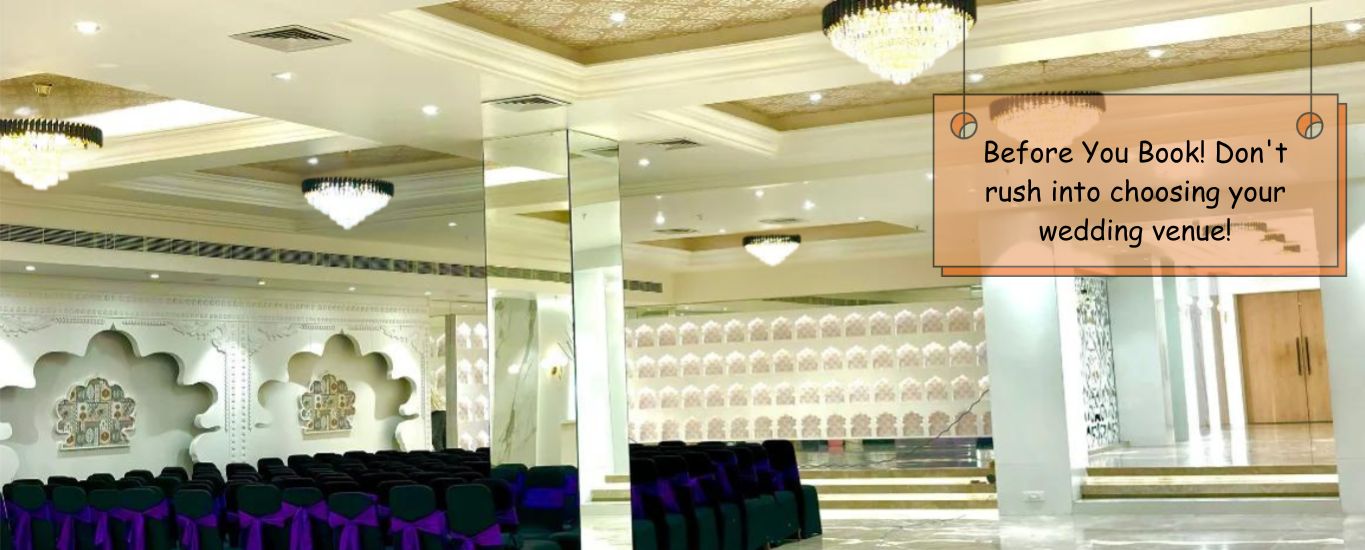Selecting the right wedding venue requires thoughtful planning and attention to detail. From budgeting and guest accommodations to vendor coordination and legal formalities, every factor contributes to a seamless wedding experience. Take your time, explore multiple options, and ask plenty of questions before making your final decision.
Choosing the perfect wedding venue is one of the most crucial decisions you’ll make when planning your dream wedding. The venue sets the tone, reflects your personality, and ensures your guests have an unforgettable experience. But before you say “yes” to the first stunning location, there are several factors to consider, from budget constraints to vendor policies and legal formalities.
Let’s break them down step by step.
Budget Considerations
Understanding Your Budget
Your venue will likely take up a significant portion of your wedding expenses, so it’s essential to allocate funds wisely. Ensure you have a clear budget breakdown and stick to it.
Hidden Costs to Watch Out For
• Taxes, Gratuities, and Service Charges: Some venues add administrative fees that may not be included in the initial quote.
• Decoration Restrictions and Additional Costs: If the venue has strict decor policies, you might have to spend extra on approved wedding decorators.
• Parking, Security, and Transportation Expenses: Check if your venue offers valet parking or if guests will need to pay separately.
Location and Accessibility
Proximity to Guests and Accommodation Options
Choose a strategic location (Our location is very convenient for everybody, located at Shree Balaji Agora Mall) that’s convenient for your guests. If you expect many out-of-town guests, ensure there are nearby hotels or guest houses with group booking discounts.
Transportation and Parking Availability
• Confirm if there is ample parking space and handicap-accessible entry.
Wedding Venue Capacity and Layout
Guest Count and Comfort
A cramped space can lead to discomfort, while an overly spacious venue might feel disconnected. Choose a venue that ensures optimal seating arrangements for your guest list.
Floor Plan and Event Flow
Consider the venue’s blueprint, including the placement of the dining area, dance floor, photo booth, and stage design.
Venue Ambiance and Aesthetic Appeal
Indoor vs. Outdoor Venues
• Outdoor venues offer a scenic backdrop but may require marquee tents for unpredictable weather.
• Indoor venues provide climate-controlled environments but might have venue decor limitations.
Customization Options and Restrictions
Check if the venue allows personalization. Some venues may restrict ceiling drapery, floral installations, or special effects like fireworks.
Weather Considerations
Backup Plans for Unexpected Weather
If you’re opting for an outdoor wedding, always have a contingency plan, such as a covered pavilion or indoor alternative.
Seasonal Venue Considerations
• Peak wedding seasons come with higher venue pricing and limited availability.
• Off-season weddings can offer discounted rates and unique seasonal decor opportunities.
Vendor Policies and Flexibility
In-House Vendors vs. External Vendors
Some venues have preferred vendor lists, while others allow independent caterers and florists.
Catering and Alcohol Restrictions
• Check if the venue provides a tasting session before finalizing the menu.
• Confirm corkage fees, alcohol permits, and bar service policies.
Facilities and Amenities
Bridal Suite and Groom’s Lounge
Ensure the venue has private suites with mirrors, wardrobe storage, and refreshment areas for the bridal party.
Restroom and Accessibility Features
Check if the venue offers well-maintained restrooms, including wheelchair-accessible washrooms.
Power Supply and Lighting Arrangements
• Outdoor venues may require backup generators for uninterrupted power.
• Confirm mood lighting options to enhance the wedding ambiance.
Event Timing and Noise Restrictions
Venue Timing and Curfews
Many venues have strict event cut-off times. Understand if there are overtime charges for extended celebrations.
Music and Sound Limitations
If you’re hiring a DJ or live band, verify sound restrictions to avoid last-minute disappointments.
Reviews and Recommendations
Checking Online Reviews
Read Google reviews, wedding forums, and social media feedback to get an unbiased view of the venue’s service.
Word-of-Mouth Recommendations
Speak with recently married couples, wedding planners, and local vendors for insider tips.
Contract and Policies
Understanding Cancellation Policies
Emergencies happen. Check if your deposit is refundable or transferable under unforeseen circumstances.
Payment Schedules and Refunds
Clarify deposit percentages, installment plans, and refund policies before signing the contract.
Final Venue Visit and Checklist
Questions to Ask Before Booking
• What is included in the rental package?
• Are there restrictions on setup, photography, or outside caterers?
• What’s the rain contingency plan for outdoor venues?
Inspecting the Venue on a Busy Day
Visit the venue during a live event to check staff efficiency, cleanliness, and event flow.
FAQs
What should be the first thing to check in a wedding venue?
The first thing to check is whether the venue fits your budget, guest count, and preferred wedding date.
How far in advance should I book my wedding venue?
It’s best to book your wedding venue at least 9-12 months in advance, especially if you’re getting married during peak season.
What are the common hidden fees in wedding venues?
Hidden fees may include service charges, corkage fees, overtime charges, and decoration restrictions.
How do I ensure my wedding venue fits my theme?
Look for a venue that aligns with your wedding style, or choose one that allows customization.
Can I negotiate prices with a wedding venue?
Yes! Many venues have flexible pricing, especially if you’re booking during an off-season or for a weekday wedding.
